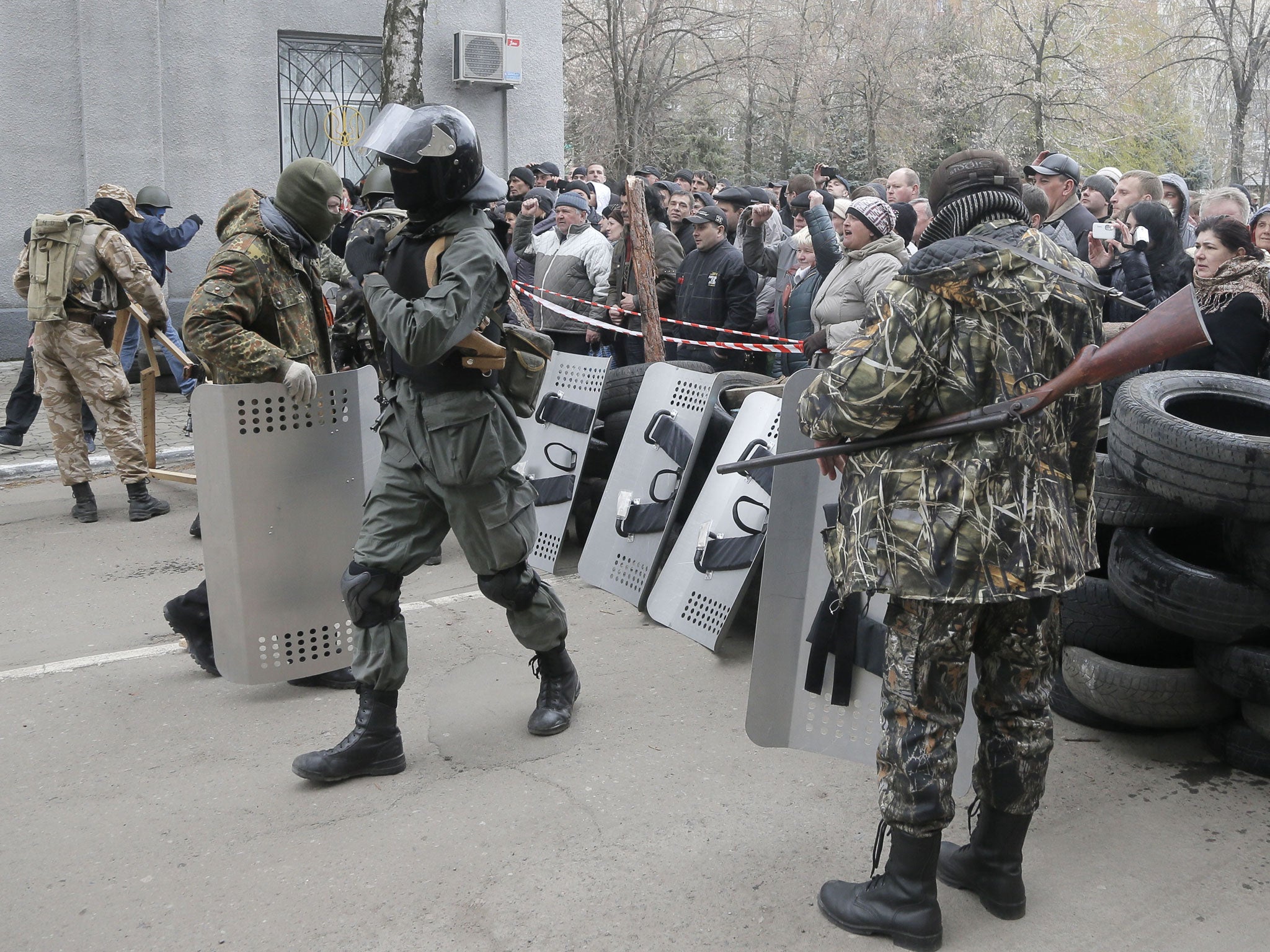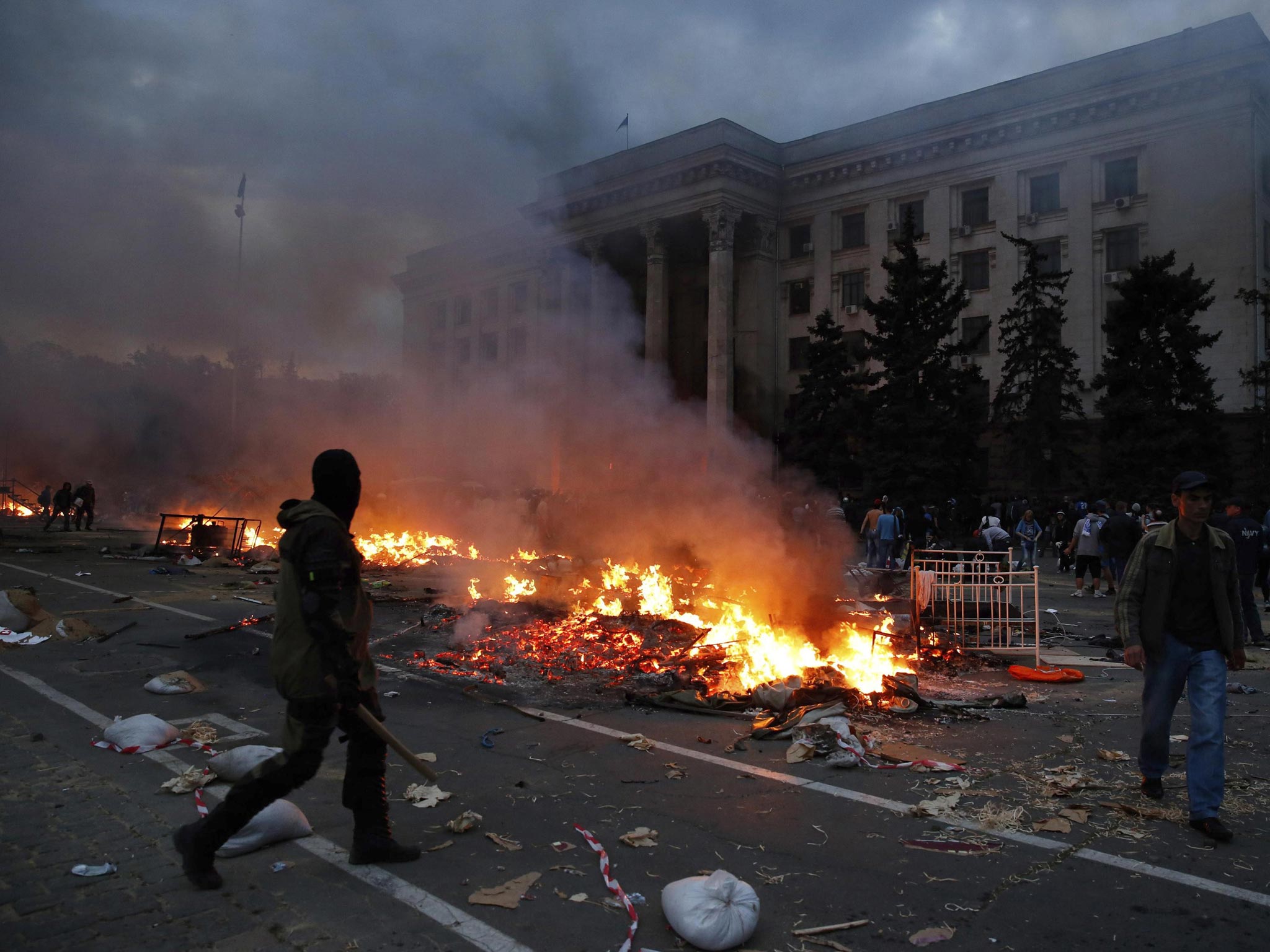Ukraine crisis: Country 'is on the brink of civil war', says Germany
German Foreign Minister believes country is 'a few steps away' from full military confrontation

Your support helps us to tell the story
From reproductive rights to climate change to Big Tech, The Independent is on the ground when the story is developing. Whether it's investigating the financials of Elon Musk's pro-Trump PAC or producing our latest documentary, 'The A Word', which shines a light on the American women fighting for reproductive rights, we know how important it is to parse out the facts from the messaging.
At such a critical moment in US history, we need reporters on the ground. Your donation allows us to keep sending journalists to speak to both sides of the story.
The Independent is trusted by Americans across the entire political spectrum. And unlike many other quality news outlets, we choose not to lock Americans out of our reporting and analysis with paywalls. We believe quality journalism should be available to everyone, paid for by those who can afford it.
Your support makes all the difference.Ukraine is on the brink of civil war following riots and bloody clashes between pro-Russian separatists and troops, according to Germany's Foreign Minister.
Frank-Walter Steinmeier spoke about the escalating violence in the divided country in interviews with newspapers El Pais, Le Monde, La Repubblica and Gazeta Wyborcza.
He said: “The bloody pictures from Odessa have shown us that we are just a few steps away from a military confrontation.”
Mr Steinmeier admitted diplomacy was more difficult after the riots in the Black Sea port and fighting between rebels and Ukrainian troops in Slovyansk but said he hoped the bloodshed would act as a wake-up call and drive both sides towards a peaceful solution.
He called for all sides in the conflict to hold a second diplomatic conference in Geneva and agree to conduct presidential elections to give Ukraine's new leadership “democratic legitimacy”.
His comments came as the German government updated advice on its website to strongly discourage travel to southern and eastern parts of the country, where pro-Russian rebels have occupied public buildings, sparking violent protests and clashes with the Ukrainian army.
“German citizens living in these areas are advised to leave,” the website said.
The statement also warned that media representatives were at “particular risk” of being abducted or detained by separatist forces.
Four Germans were among a team of European military observers that were held for more than a week by insurgents in the rebel stronghold of Slovyansk until their release on Saturday.
The British government, which last updated its advisory on Saturday, has already recommended that UK nationals leave Crimea and is advising against all travel to the most troubled parts.
A spokesman for the Foreign and Commonwealth Office said: “As always, the safety of British nationals is a priority.
“We continue to follow developments carefully and keep our travel advice under continuous review.
“British nationals should continue to monitor FCO travel advice closely for any updates.”

Danger areas identified by both governments included Slovyansk, Donetsk, Lugansk, Odessa and the Crimean peninsula, which is under Russian control.
The Ukrainian government claimed 30 pro-Russian rebels have been killed in Slovyansk in battles with the army and dozens of people also died in violent riots in Odessa.
It is one of several Ukrainian cities where separatists have seized official buildings and many fear violence will escalate as the government continues its military crackdown.
Pro-Russian militants oppose the central government in Kiev, which came to power after the Russia-leaning president, Viktor Yanukovych, fled following months of street protests.
Additional reporting by AP
Join our commenting forum
Join thought-provoking conversations, follow other Independent readers and see their replies
Comments